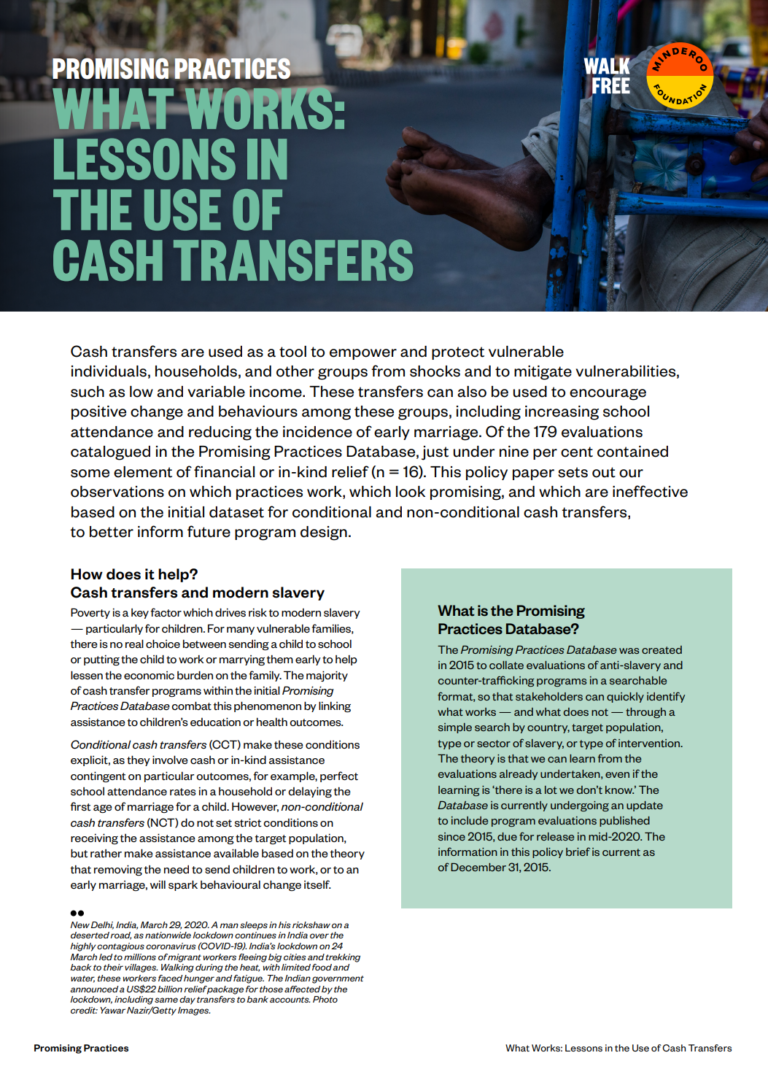Driving Behavior Change of Recruiters, Suppliers, and Job Seekers Toward Ethical Recruitment: Critical Roles of Global Buyers and Grassroots Actors
PublicationsThis report was prepared by Dr. Lisa Rende Taylor and Ohnmar Ei Ei Chaw, Issara Institute. Issara Institute programming in Myanmar and Thailand over the past year has focused on driving more ethical recruitment systems, down to the ‚Äėfirst mile‚...Read More

